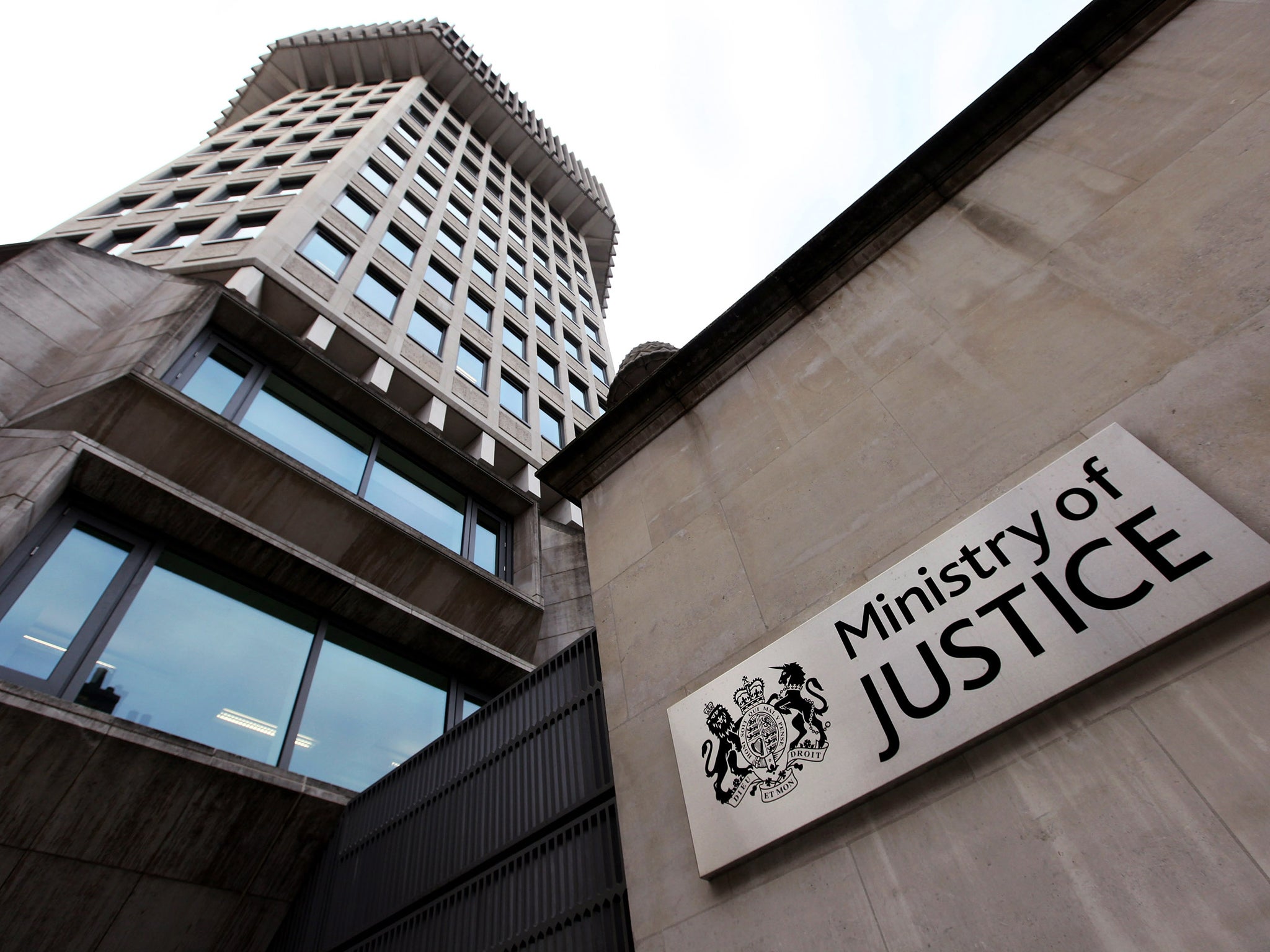Government plans to close 91 courts and tribunals 'would make crime victims suffer'
The new proposals will save an estimated £30m a year from the running costs of Her Majesty’s Courts and Tribunal Service

Your support helps us to tell the story
As your White House correspondent, I ask the tough questions and seek the answers that matter.
Your support enables me to be in the room, pressing for transparency and accountability. Without your contributions, we wouldn't have the resources to challenge those in power.
Your donation makes it possible for us to keep doing this important work, keeping you informed every step of the way to the November election

Andrew Feinberg
White House Correspondent
Victims of crime and others seeking justice will suffer from Government proposals to close 91 courts and tribunals across England and Wales, the Law Society has warned. The cuts planned by the Ministry of Justice would see one in five courts and tribunals closed.
The new proposals will save an estimated £30m a year from the running costs of Her Majesty’s Courts and Tribunal Service.
But the penalty paid by those who need to go to court – particularly those who do not own cars - will be in the form of longer and more expensive journeys. Some will face travelling more than two hours each way, according to the Law Society’s response to the consultation.
The plan to close 91 courts and tribunals “undermines access to justice, and the principle of local justice,” and could see solicitors abandon legal aid cases. “Some of our members have said that they may withdraw their tenders altogether as they do not believe they would be able to fulfil their contract if courts closed in their region. This would have a detrimental effect on the availability of legal advice to those individuals that qualify for legal aid,” it adds.
Longer journeys would “have a disproportionate impact on vulnerable court users...victims in domestic violence cases are under great emotional and financial strain...requiring such vulnerable claimants to travel for over two hours to court would make an already stressful situation even harder.”
And those “whose financial situations are aggravated by recent changes in housing benefit, rising rents and low wages, will suffer even greater problems if they cannot afford attend court to explain their situation,” says the response.
Jonathan Smithers, president of the Law Society, commented: “A majority of these proposed court closures will make it more difficult for a significant number people to get to court, and the closures will more adversely affect people living in rural areas, those with disabilities and lower income families.”
He added: “Combined with the further planned increases in court fees and reductions in eligibility for legal aid, many of the proposed closures will serve to deepen the inequalities in the justice system between those who can and cannot afford to pay.”
Echoing the concerns, Mark Fenhalls QC, chairman of the Criminal Bar Association, commented: “Closures will restrict access to justice, especially for those who finding travelling arduous and costly. One of the great strengths of our legal system has been its roots in the communities it serves, so that judges, magistrates and jurors can deploy their local knowledge to greatest effect. That will be lost.”
The Government’s impact assessment on the proposals claims the majority of people affected “will be within an acceptable travelling distance of the courts.” But it admits that only 59 per cent will be able to get to court in less than an hour using public transport, and that longer journeys “could also lead to knock on effects such as non-appearance in court for some cases.”
In a statement, a spokesperson for HM Courts & Tribunals Service said: “This consultation is not about distancing people from justice. In the future, we will offer modern, digital ways of interacting with the justice system. Fewer people will need to come to court in person. We have court and tribunal buildings across the country which are no longer fit for purpose, with inadequate facilities and very poor utilisation rates.” They added: “all responses will be carefully considered before any decisions are made.”
Subscribe to Independent Premium to bookmark this article
Want to bookmark your favourite articles and stories to read or reference later? Start your Independent Premium subscription today.